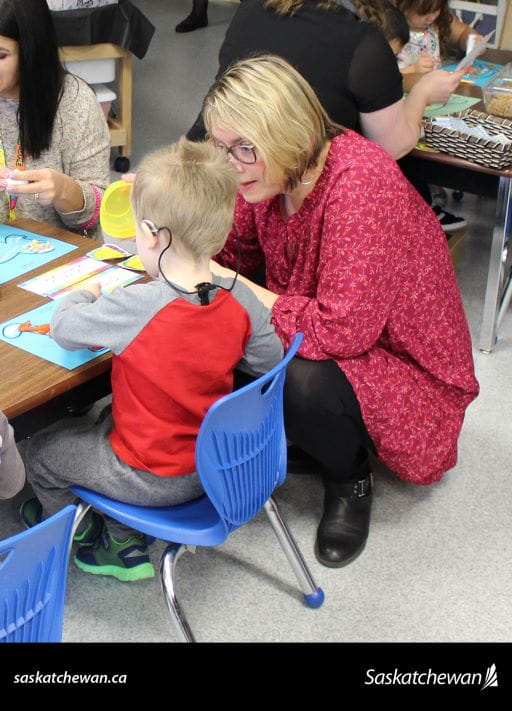Released on September 3, 2019
As a new school year begins, thousands of Pre-kindergarten to Grade 12 students and early learners will receive targeted supports to assist them in reaching their full potential.
“Ensuring all Saskatchewan children and youth have access to a quality education is the mandate of this government,” Deputy Premier and Minister of Education Gordon Wyant said. “We are pleased to have been able to expand the supports available to children and students with intensive needs over the past year, and hope that any family looking for assistance will take advantage of the many programs available.”

New or expanded supports introduced over the past year include:
• Early Learning Intensive Support (ELIS):
Provides school divisions with funding to expand Pre-kindergarten programs for children with intensive needs. This includes hiring additional educational assistants and bringing in specialized resources. ELIS was first established in Saskatoon and Regina in 2018, and is now expanding to the communities of Moose Jaw, North Battleford, Prince Albert, Swift Current and Yorkton.
• Supports for Learning:
Provides $285.5 million in funding to school divisions and Conseil des écoles fransaskoises that can be directed towards programming for children requiring additional supports, including those with intensive needs. Funding was increased by $2.8 million in the 2019-20 budget.
• Inclusion and Intervention Plan (IIP):
Schools work with families to develop an IIP. The IIP focuses on priority outcomes based on the individual student’s strengths, interests and needs. It describes the supports and strategies the student requires, and the person(s) responsible for providing the supports. The student’s progress is monitored and the plan is adjusted as the student’s needs change.
• Mental Health Supports:
For the 2019-20 school year, divisions and Conseil des écoles fransaskoises are budgeted to spend more than $31 million on counsellors, psychologists and social workers in support of students within the education system.
• Early Childhood Intervention Program (ECIP):
Works with the families of over 1,300 Saskatchewan children experiencing or at risk of experiencing a disability or developmental delay. ECIP staff identify areas of delay, enhance child development and provide assistance to parents. Funding for this program was increased to $4.3 million in the 2019-20 budget.
• KidsFirst:
Provides child development supports to approximately 1,700 Saskatchewan families. Supports include home visits, tools to support learning and development, mental health services and connections to other community programs.
• The Enhanced Accessibility Grant:
Grant money of up to $2,000 a month is available to licensed child care facilities in Saskatchewan to support any additional staffing costs required to care for a child with particularly challenging needs and/or behaviours.
• Children Communicating, Connecting and in Community:
Provides early intervention and support for pre-school aged children who are deaf and hard of hearing, or connected to the deaf and hard of hearing community. Professional supports, such as speech and language pathologists, are available to assist with language development. This program is available in both oral and signed language options in Saskatoon and Regina.
• Eagle’s Nest Youth Ranch:
The 2019-20 budget included a $77,000 increase in funding for Eagle’s Nest Youth Ranch, to expand staffing and spaces for youth requiring additional educational supports.
Through the Canada-Saskatchewan Early Learning and Child Care Agreement work is also continuing to implement more training for early childhood educators on how to best support children with challenging needs and/or behaviours.
Increasing supports for the province’s most vulnerable young learners continues to be a priority for this government, as is ensuring all Saskatchewan children get the best start in life.
-30-
For more information, contact:
Dale Hunter
Education
Regina
Phone: 306-787-9501
Email: dale.hunter@gov.sk.ca
Cell: 306-529-9207

